In today's world, where countless individuals are facing unimaginable hardships, the power of community and compassion becomes more vital than ever. A simple act of kindness can create a ripple effect, transforming lives and bringing hope to those in dire need. Our humanitarian aid fundraising campaign aims to bridge the gap between despair and opportunity, and we believe that together, we can make a significant difference. Join us in exploring the ways you can contribute and be a beacon of hope for those who need it most!
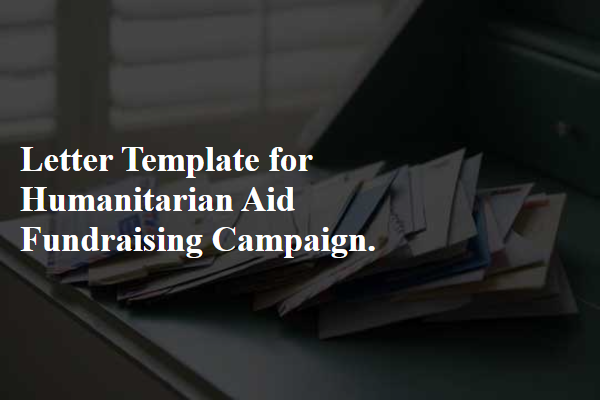
Engaging and emotional storytelling
In the heart of Syria, the shattered remnants of Aleppo stand as a haunting testament to years of conflict and despair. Millions of families, including children who once played in sunlit streets, now face unimaginable hardships, with food scarcity reaching alarming levels--nearly 12 million people are food insecure according to recent reports. Winter temperatures in the region can plummet to minus 6 degrees Celsius, leaving vulnerable individuals exposed to harsh elements without adequate clothing or shelter. As aid organizations work tirelessly amidst the rubble, they rely on the generosity of compassionate individuals like you to provide essential supplies such as warm blankets, nutritious meals, and medical care. Every contribution, no matter how small, offers a glimmer of hope to those who have lost so much, transforming despair into resilience and restoring dignity in the face of adversity.
Clear and specific call to action
Humanitarian aid organizations, such as UNICEF, provide crucial support during crises affecting vulnerable populations, including children and families in war-torn regions like Syria (over 12 million individuals require assistance as of 2023). Your contribution can significantly impact these lives, providing essential resources like clean water, food supplies, and medical care. Every dollar counts; for example, just $50 can supply a month's worth of nutritional food packs to a malnourished child. Join the fight against poverty and suffering. Donate today to ensure that aid reaches those in desperate need, because together we can build a more compassionate world. Be the change, act now, and help create brighter tomorrows for those who need it most.
Transparency in fund allocation
Transparency in fund allocation significantly impacts the effectiveness of humanitarian aid initiatives. Organizations, like the United Nations (UN), manage billions of dollars annually, necessitating rigorous tracking of financial resources. Clear breakdowns of allocated funds enhance donor trust and accountability, demonstrating how every dollar impacts beneficiaries. In regions affected by crises, such as Syria, where over 13 million people require assistance, transparency ensures that vital supplies - food, water, medical care - reach those most in need. Additionally, detailed reporting mechanisms can reveal how funds are utilized, addressing concerns about mismanagement and bolstering future contributions. Overall, transparency fosters stronger relationships between organizations, donors, and communities, ultimately improving humanitarian outcomes.
Strong supporting visual elements
Humanitarian aid campaigns often utilize evocative imagery and powerful statistics to appeal to potential donors. For instance, visual representations of communities affected by natural disasters, such as the 2010 earthquake in Haiti, emphasize the urgent needs for food, shelter, and medical care. Highlighting stark images of displaced families living in temporary tents can evoke empathy. Accompanying statistics, such as over 1.5 million people affected, provide a sobering context that reinforces the call to action. Infographics that depict funding goals, such as a target of $100,000 to provide clean water to 25,000 individuals, further engage potential supporters. The combination of impactful visuals and compelling numerical data creates a poignant narrative that encourages immediate contributions, tapping into the audience's desire to make a tangible difference in the lives of those in dire circumstances.
Well-defined target audience
A well-defined target audience for humanitarian aid fundraising campaigns consists of individuals with a strong interest in philanthropy, community engagement, and global welfare. This includes socially aware millennials aged 25-40, often engaged in social media platforms like Instagram and Facebook, who demonstrate a willingness to support charitable causes through donations and volunteer efforts. Additionally, affluent baby boomers aged 55-75, with a history of charitable giving, are motivated by a desire to leave a legacy and positively impact future generations. Corporate partners interested in corporate social responsibility (CSR) initiatives also form a significant segment, looking to enhance their brand image through community support. Lastly, local community groups and religious organizations often rally around humanitarian causes, forming grassroots networks to mobilize contributions and volunteer hours. Understanding these segments allows for tailored messaging and engagement strategies that resonate with each group's values and motivations.
Letter Template For Humanitarian Aid Fundraising Campaign. Samples
Letter template of collaboration invitation for humanitarian aid fundraising.
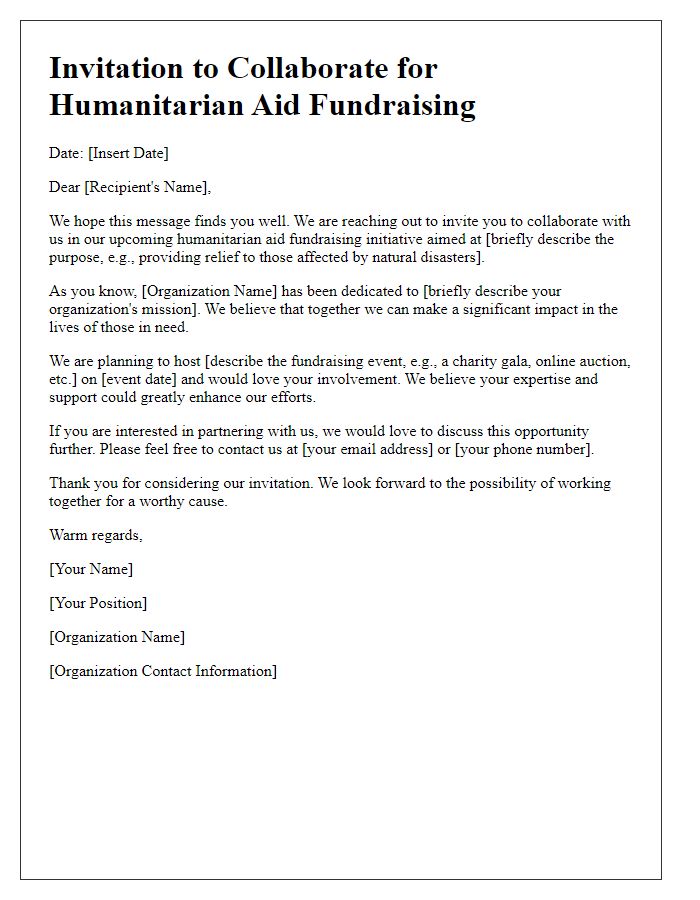
Letter template of community involvement in humanitarian fundraising events.
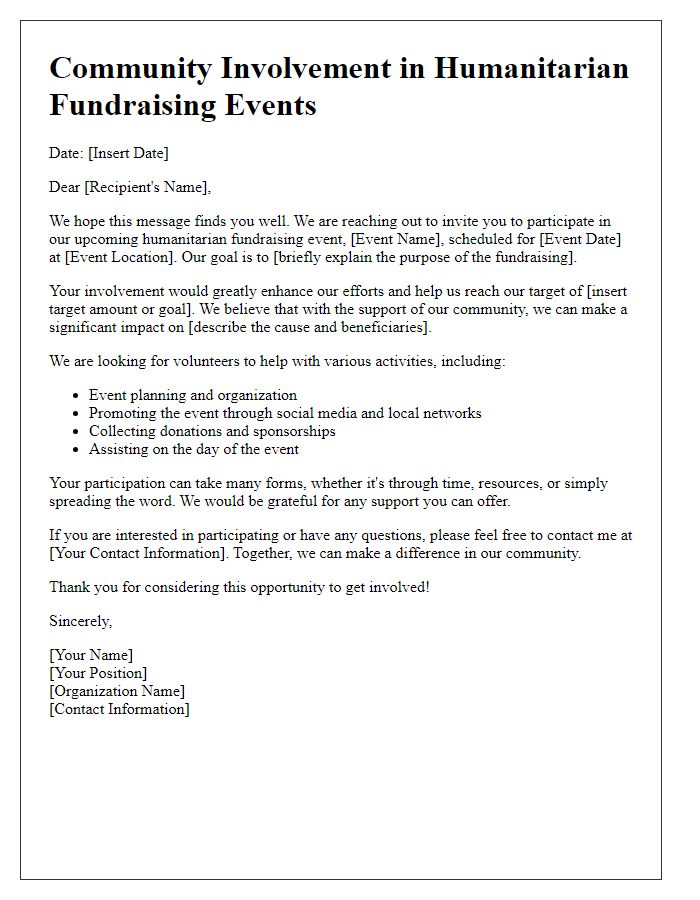
Letter template of gratitude for past support in humanitarian aid campaigns.
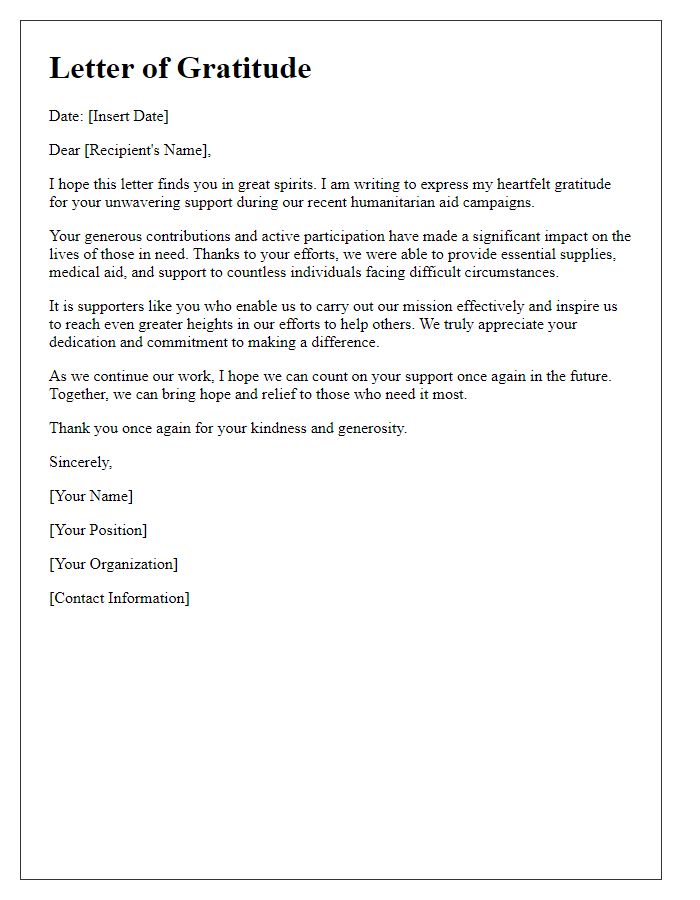

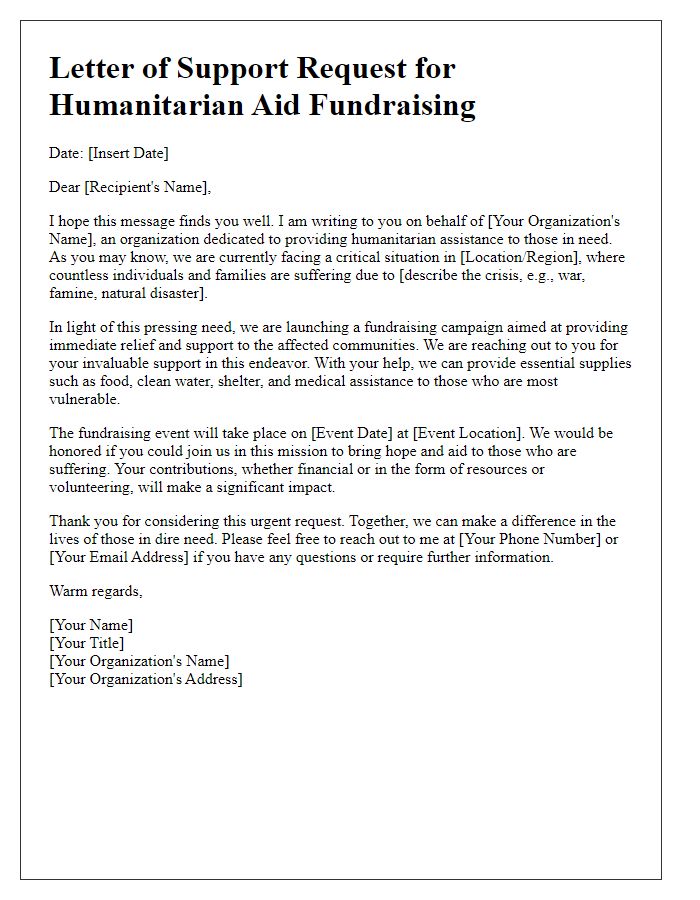
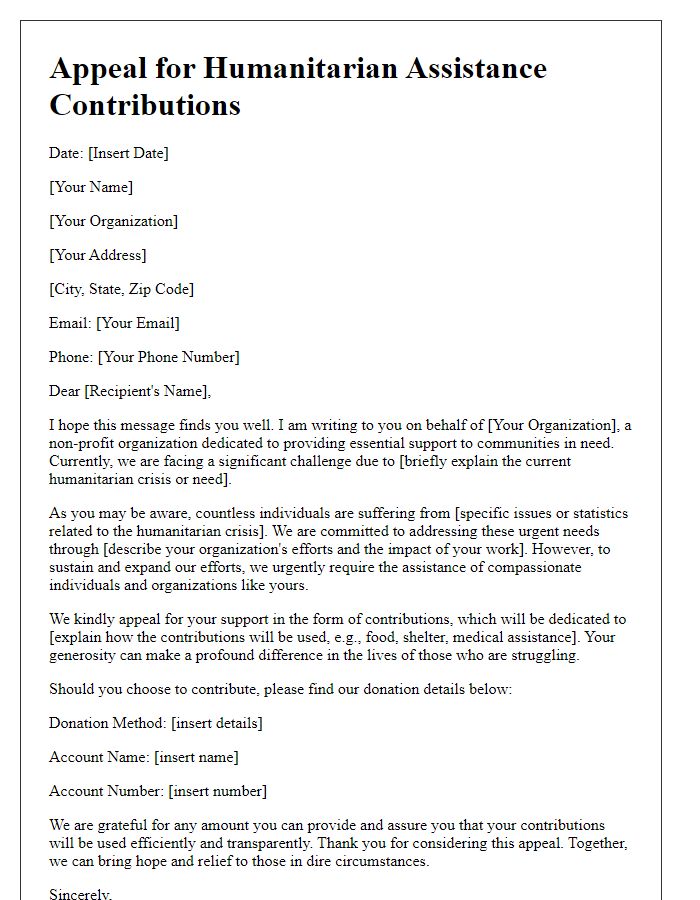
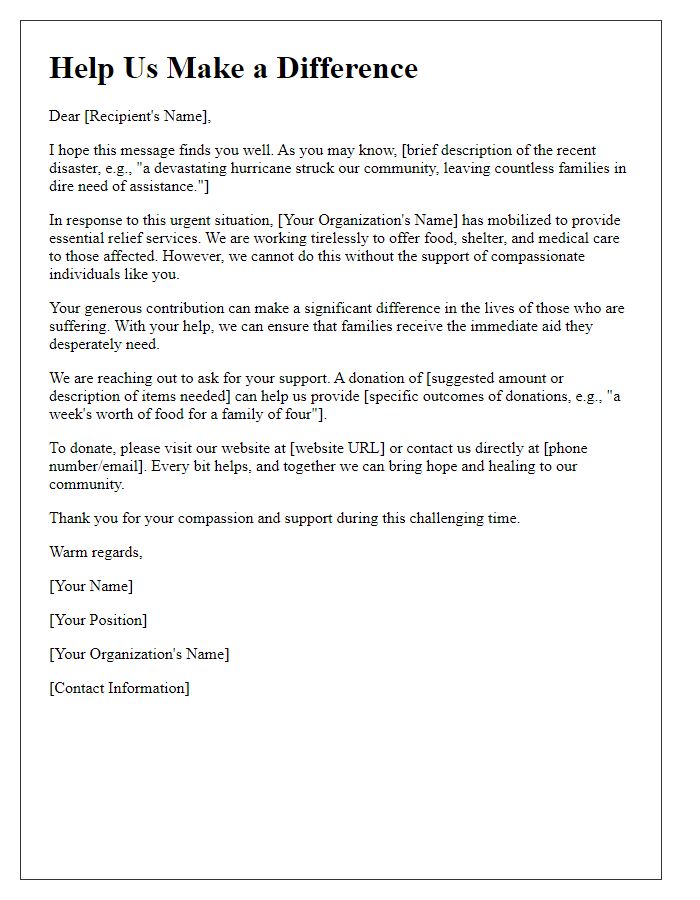
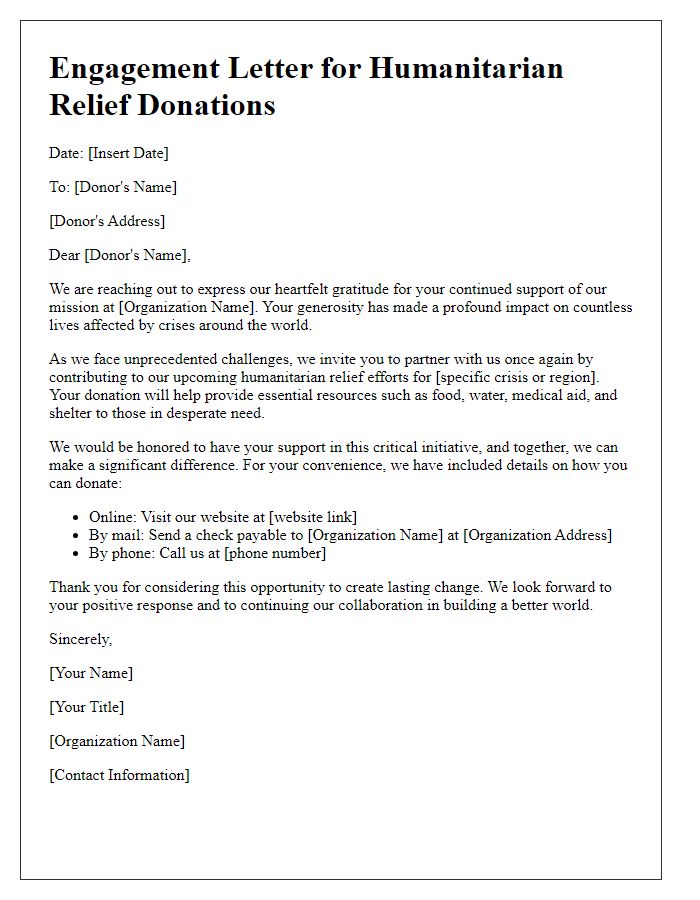
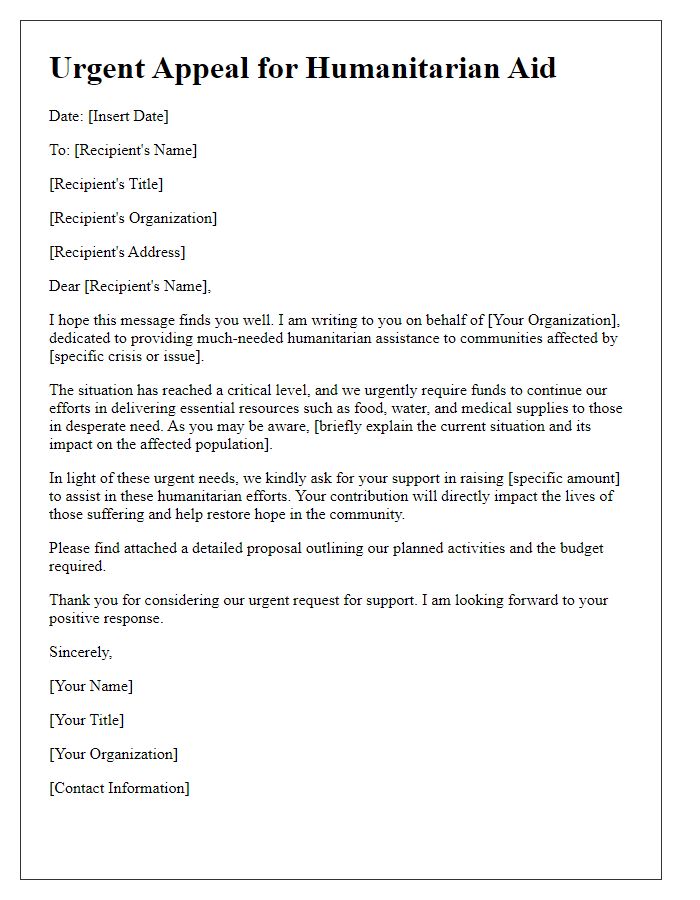
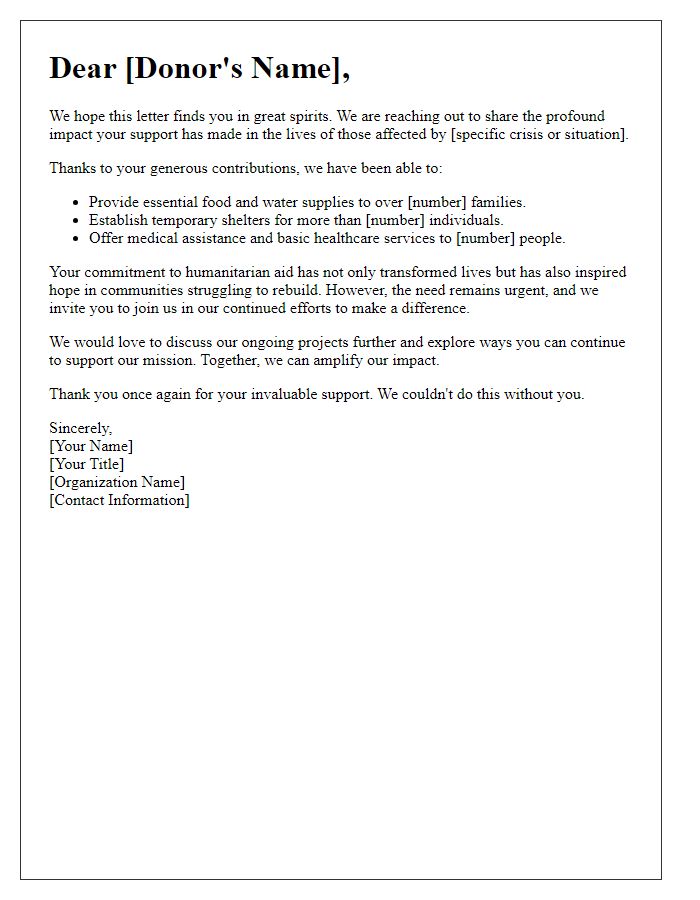
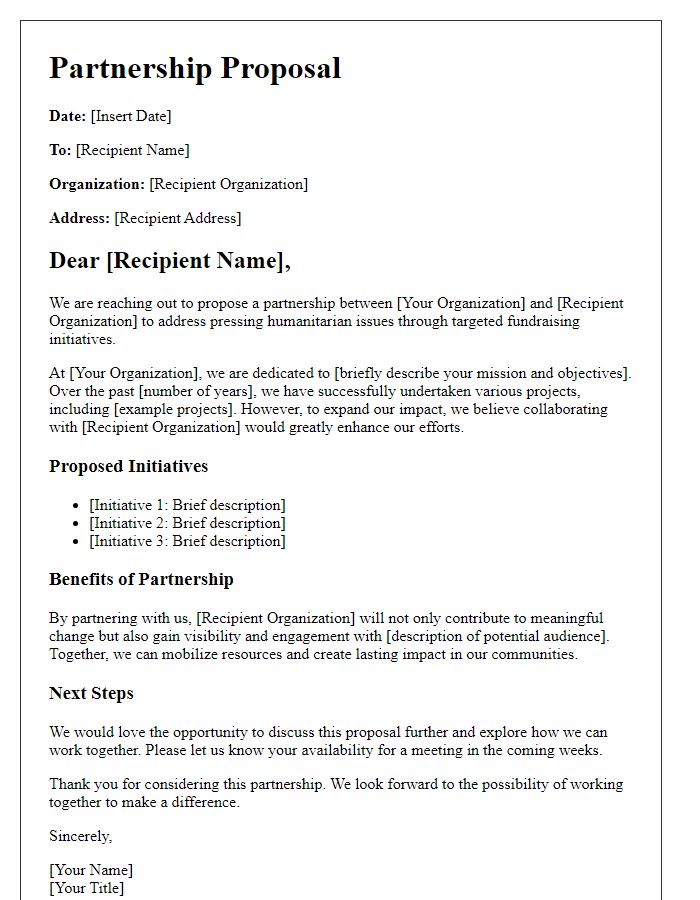

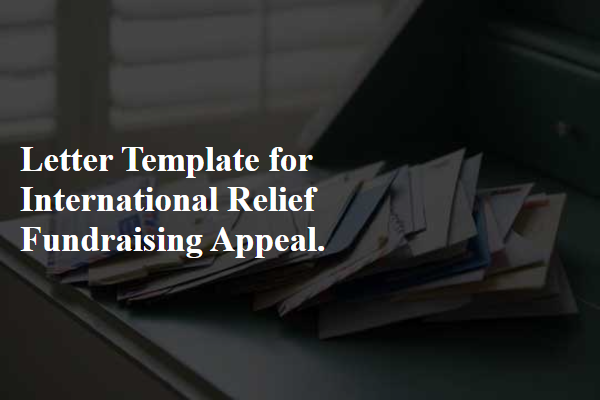
Comments